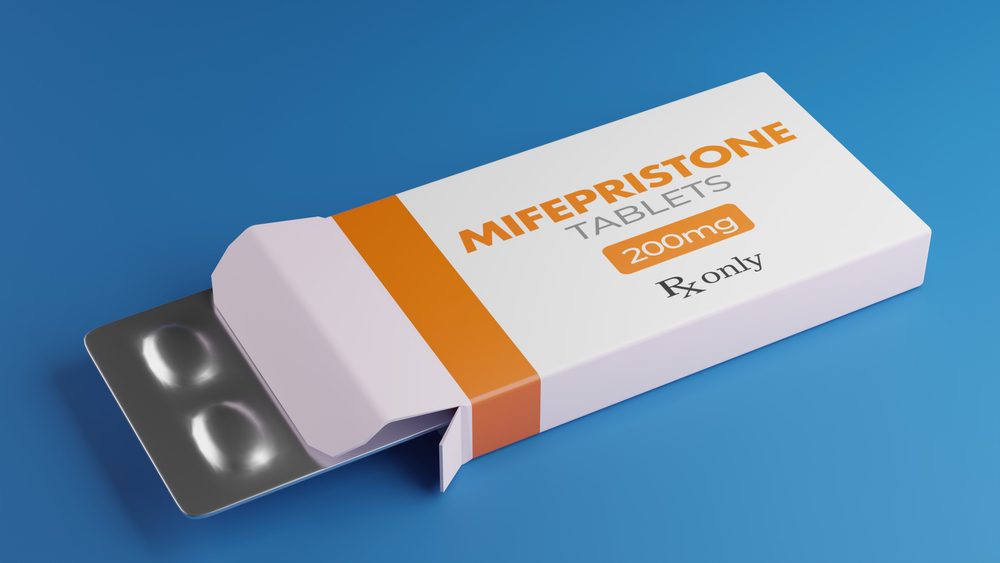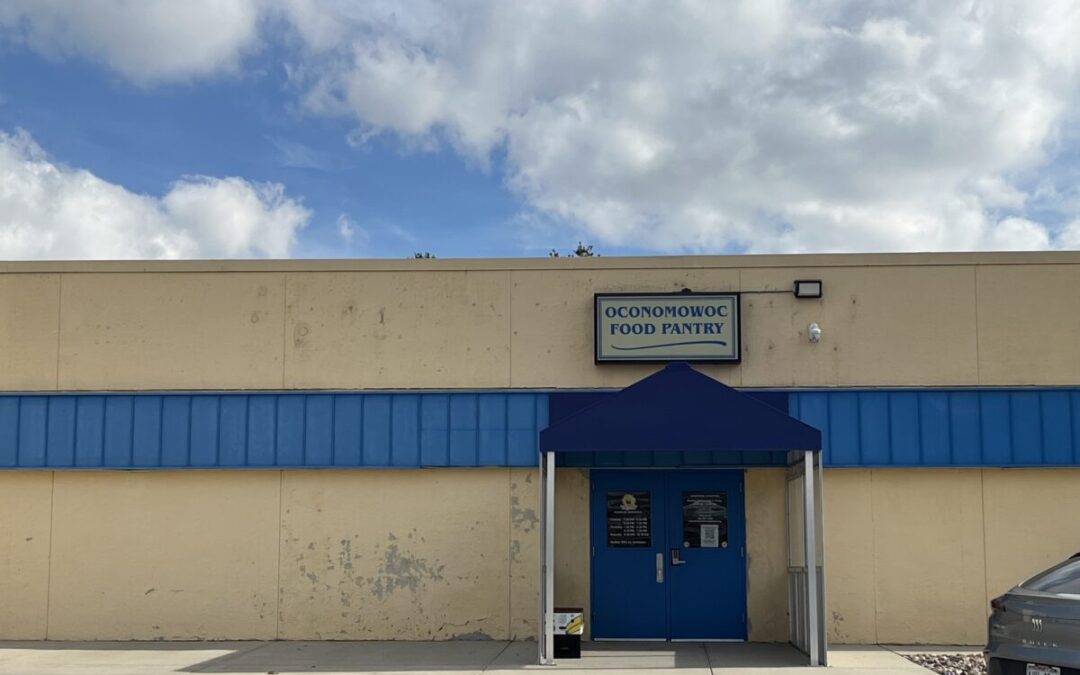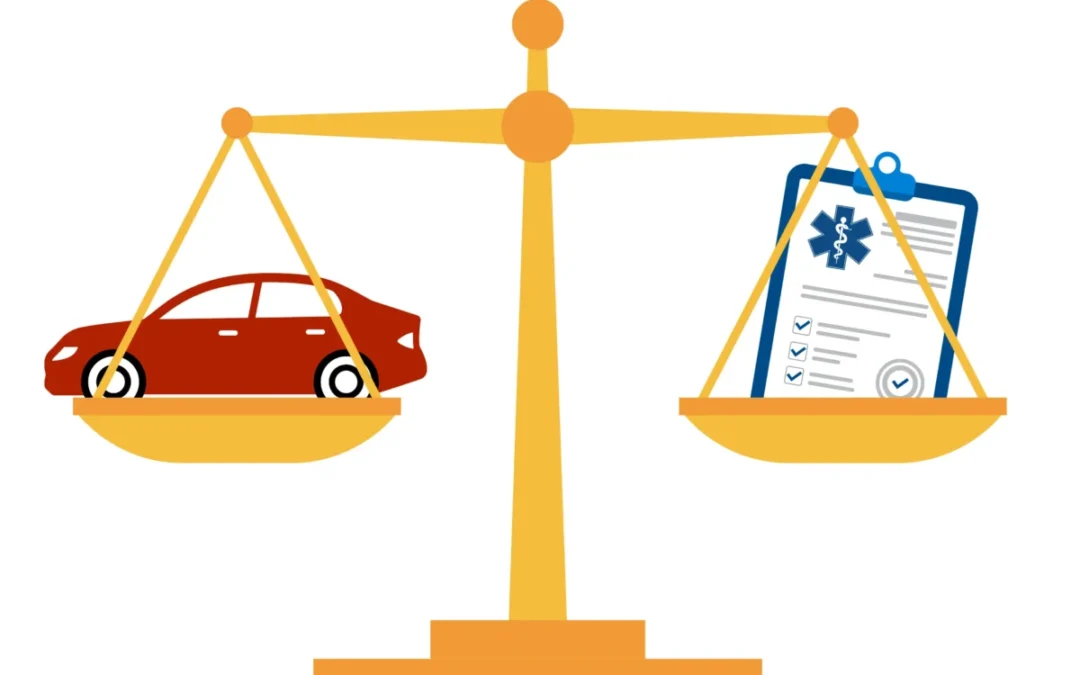
Hospitals in Milwaukee County are making positive changes to their financial assistance policies that are expected to help reduce the creation of medical debt. Image via Shutterstock
With federal aid in hand, the Milwaukee County Board of Supervisors decided to eliminate locals’ medical debt—but the plan changed. For the better.
“We have a mission to make Milwaukee County the healthiest county in Wisconsin,” Milwaukee County Supervisor Shawn Rolland said.
Facing Rolland and the rest of the Board of Supervisors, however, was a big hurdle: Residents avoiding medical care due to financial fears, and their $153 million in medical debt.
The big idea
At the start of 2023, the Board of Supervisors decided to use $1.6 million in federal American Rescue Plan Act (ARPA) funds courtesy of the Biden administration to partner with the nonprofit organization RIP Medical Debt (now named Undue Medical Debt). The plan was that together, they’d buy up Milwaukee County residents’ medical debt. Then, they’d cancel it.
“What we are hearing is a lot of people were reluctant to go to the doctor because they were worried,” Rolland said. “Because they thought the doctor might come to collect or get them in trouble because they had some medical debt recorded.”
The supervisors’ idea was poised to make a big impact for local folks, and potentially set a precedent statewide. A recent report from the Wisconsin Hospital Association found that uncompensated care for Wisconsin hospitals in 2021 totaled $1.29 billion. The next year, in 2022, those same hospitals provided another $1.3 billion in uncompensated healthcare services.
Of that $1.3 billion, $582.6 million was “charity care.” That’s health care for which a hospital does not expect payment because they’ve determined that the patients simply cannot afford the care they need—in other words, the hospital system writes off the bill.
The rest was “bad debt”—payments the hospital system expected to receive, but didn’t. Patients who get classified as “bad debt” tend to be sued in court and have their credit scores negatively impacted. And in 2022, healthcare systems began sending unpaid medical bills to collection at an increased rate, versus considering patients for charity care classification or working with the patients to repay their debt. So whether it was to help folks access medical care again, or simply to allow the huge number of people struggling under medical debt and its related credit and legal troubles, eliminating the money owed to Milwaukee County hospitals was going to do a lot of good in the community.
After months of meetings with healthcare systems, the supervisors learned that the local hospitals wouldn’t accept RIP Medical Debt’s proposal—which was to buy residents’ debt at a lower rate. It’s not as wild an idea as it sounds—check out this 2016 episode of Last Week Tonight with John Oliver, in which Oliver breaks down how the process works, then proceeds to buy and cancel $15 million in medical debt for just $60,000.
So when the Milwaukee County hospitals declined the offer, the supervisors knew they needed a new way to help their community get healthy. That’s when they started talking about charity care.
The new sustainable plan
They couldn’t wipe the slate clean for the people already in medical debt—but what about the residents who were going to have medical debt soon?
This was an idea the local hospitals would discuss with the board. And given that the amount of medical debt is rising each year, the supervisors saw that it had the potential to help even more members of their community than the original plan had.
“We set out on a path to help abolish people’s medical debt,” said Supervisor Rolland, who’s also the chair for the county’s ARPA Task Force. ”We had one solution in mind initially, but ultimately landed on another solution that would be more impactful.”
The new plan was for local healthcare systems to use income levels and reports to automatically enroll qualifying patients into charity care programs.
“Which is exciting,” Rolland said. “The great news is that these people won’t even receive a bill from the hospital.”
The local health systems—Aurora Health Care, Froedtert Health, Ascension, and Children’s Wisconsin—have policies that forgive 100% of unreimbursed hospital expenses for patients below 250% to 300% of the federal poverty level. They also provide sliding scale discounts for uninsured and underinsured patients up to 400% of the federal poverty level, and long-term payment plan options for others who do not qualify for financial assistance.
Automating enrollment means fewer instances that require patients to apply. It brings in those who are financially eligible but who would ordinarily miss out on the benefits, Rolland speculates, because of the need to provide documentation, a hesitancy to request help, being unaware of the programs, or the complexity of medical billing.
At the same time Rolland and his fellow county supervisors were working on the ground to eliminate medical debt, the Biden administration was working from the top down to decrease penalties on people who carry it, and to expand access to Medicaid. In fact, while Wisconsin Republicans turned their backs on the state Department of Health Services—which detailed the need to expand Medicaid in the state—Democratic Gov. Tony Evers included funding for more Medicaid access in his 2023-25 biennial budget proposal. State Republicans voted instead to remove Medicaid expansion from the budget.
“States that have expanded Medicaid have experienced positive outcomes as more people gain access to needed treatment and care, hospitals stay open, and jobs and the economy grow,” the health department said in a report. These states also, notably, see massive declines in medical debt.
RELATED: What you need to know about medical debt in Wisconsin
The outlook on the future
“It’s 2024—we have the technology to automatically qualify people for programs,” Rolland said. And it’s not just [about] pre-qualifying people for charity care.”
“To me, it’s ‘How do we use big data—from credit reports or elsewhere—to prequalify people for all sorts of programs that they should be eligible for, but they are currently not participating in because they either didn’t know it existed or didn’t know the form, or just thought the process was so onerous they didn’t have time to apply for it?’”
“There’s just a huge opportunity for public officials to think through.”
Rolland said eliminating future debt has the added benefit of removing perceived obstacles to preventative health care.
“The whole reason we did this was to make people feel comfortable about visiting their primary care doctor,” Rolland said.
Rolland said preventative care helps people stay healthier, and as a result, lowers healthcare costs, so people don’t end up in a crisis mode. When bills go unpaid, though, providers and insurers could conceivably pass on the cost to the rest of the paying folks.
The price of charity care, however, is typically less—so everyone saves money when people get treated before small medical problems turn into big expensive ones.
And this is how Rolland believes his county will be the healthiest in the state, plus have fewer people beholden to their medical debt.
“Instead of being able to abolish the medical debt that’s already in the books, this is forward looking—to prevent medical debt from happening in the future,” he said.
“These will endure—these will continue on,” Rolland said. “It’s sustainable—we’ll be able to prevent medical debt indefinitely for a huge group of people that would otherwise not have had it.”
RELATED: Biden Administration launches effort to ban medical debt from credit scores
Support Our Cause
Thank you for taking the time to read our work. Before you go, we hope you'll consider supporting our values-driven journalism, which has always strived to make clear what's really at stake for Wisconsinites and our future.
Since day one, our goal here at UpNorthNews has always been to empower people across the state with fact-based news and information. We believe that when people are armed with knowledge about what's happening in their local, state, and federal governments—including who is working on their behalf and who is actively trying to block efforts aimed at improving the daily lives of Wisconsin families—they will be inspired to become civically engaged.


RFK Jr. ignores 100+ studies to push abortion pill ban—this is the mifepristone explainer you need
By Bonnie Fuller Apprehensive OB-GYNs across the country are alerting Americans that Health & Human Services Secretary Robert F. Kennedy Jr. may...

How to support Wisconsin residents as SNAP funding disappears
As the nation remains in a government shutdown, food assistance programs in Wisconsin are feeling the effects. FoodShare, Wisconsin’s federal...

A new car vs. health insurance? Average family job-based coverage hits $27K
By Phil Galewitz, KFF Health News With the federal shutdown entering its fourth week, spurred by a stalemate over the cost of health insurance for...

What is Halle Berry doing for Wisconsin women?
The actor and menopause advocate is speaking in support of a bipartisan bill to get better resources to doctors and patients. She did the same last...





